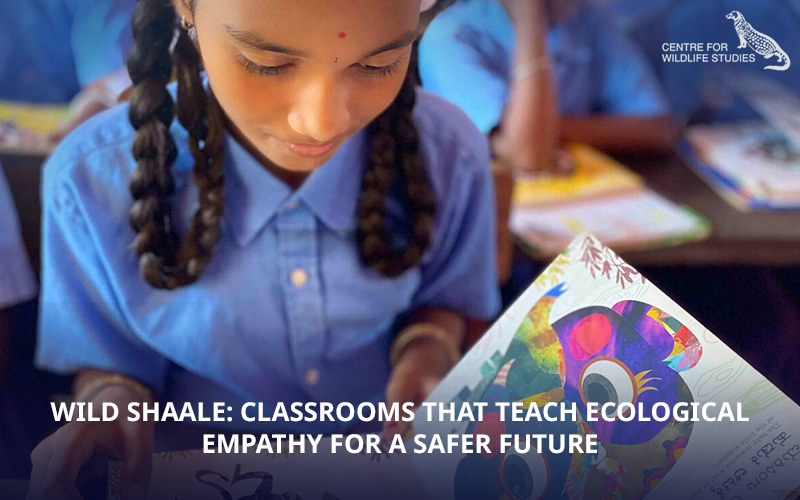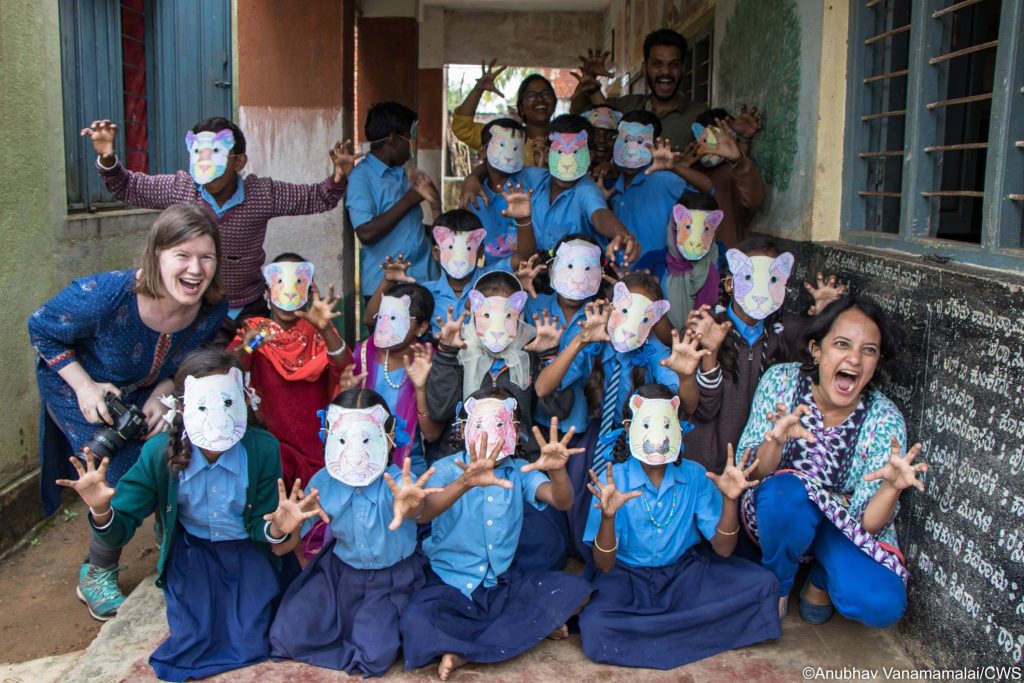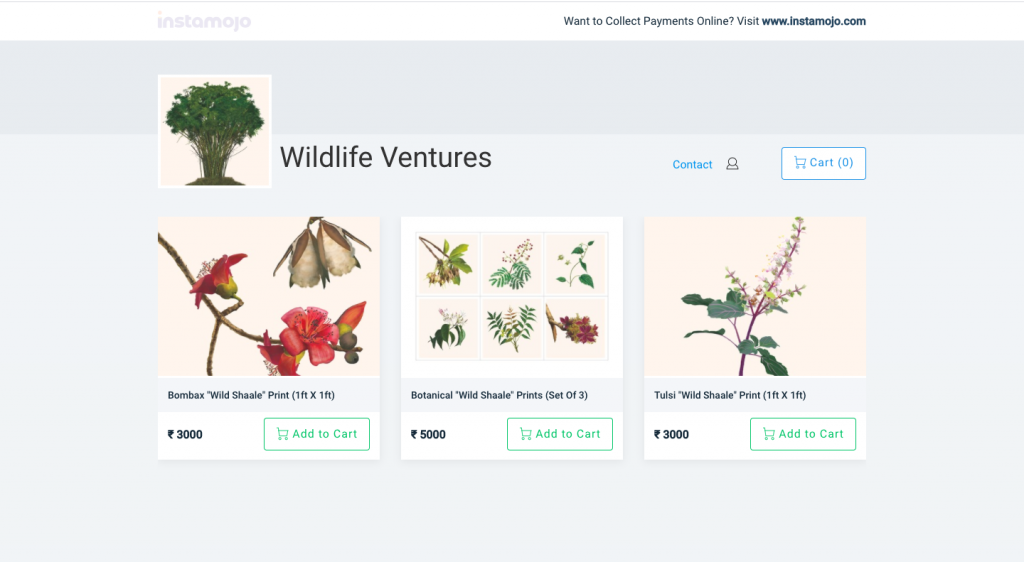Have you heard stories of crop damage and livestock loss in rural India because of a wild animal attack? These stories may just be news clippings for an urban population but a reality to those living near wildlife reserves in India.
Wild Shaale, an environmental and conservation education initiative by the Centre for Wildlife Studies (CWS), aims to develop empathy towards wildlife. It also hopes to inculcate more knowledge about local wildlife in rural school children who live in these high human-wildlife conflict zones.
COVID-19 is another reminder to understand the wildlife around us
I recently watched a Netflix documentary which explained how viruses could be more prone to becoming a pandemic. Now more than ever. The documentary explained how we are encroaching forest areas to build villages and cities. This exposes us to wildlife and them to us.
It (a virus) mutates, it spreads, and it wreaks havoc.
In countries like India where wildlife and people live in very close proximity to one another, there is an increased likelihood of zoonotic diseases passing between them.
Viruses that cause such diseases have access to new living beings as zones of habitation overlap in places where forests have been cut down to facilitate development projects. This affects both humans and wild animals. We need a wider understanding of these diseases and how our actions contribute to this spread.
There is a deep imbalance in our understanding of ecology. We spoke to Krithi Karanth, the chief conservation scientist & director at Centre for Wildlife Studies to understand ecological empathy and how the Wild Shaale program is a humbling start to a peaceful relationship between humans and wild animals.
“We firmly believe that every child has an innate fascination and love for nature.”
“To help nurture this the Wild Shaale program works with children living around India’s wildlife reserves.”
“In two years, the inspiring and committed educators have reached over 20,000 children to help them understand their environment better and rebuild in them a sense of wonder for the natural world.”
Animals Got Here First!
Wild Shaale was started in 2018 as an initiative to educate students in India’s conservation
priority zones about the wild animals and wild spaces around them – starting with elephants and tigers. The curriculum has been expanded to include a wide range of topics today. It reflects the rich biodiversity that India houses.
This curriculum is delivered by trained educators from CWS around several National Parks and Tiger Reserves. They implement Wild Shaale’s experiential learning model with hands-on activities, games, arts and crafts, and multimedia presentations. This gives children comprehensive knowledge and context about the spaces they share with wild animals.
“One thing that struck me was in this school, there was a child that didn’t talk a lot. At the end of every session, we ask the children what they learned, what an animal needs, what a human needs etc.
She stood up and said, “Whatever humans need, so do animals and since they were here first, they have all the rights to all their needs more than us.” – Nita Satheesh, Project Coordinator, Wild Shaale.
How about a bit of ‘Limited Edition Wild Shaale’ in your home?
The CWS & Wild Shaale team relies on donations to conduct these sessions. The team wants you to have a part of nature in your house so you could help them reach out to more schools with this program.
CWS collaborated with the incredibly talented botanical illustrator Nirupa Rao, who created stunning illustrations of local plants to use in the Wild Shaale program. These artworks have helped thousands of children engage with the plant life around them closely.
We collaborated with the incredibly talented botanical illustrator Nirupa Rao, who created stunning illustrations of local plants to use in the Wild Shaale program. We are grateful to her for her contribution.
The prints are available on Wild Shaale’s Instamojo online store. All the proceeds from these go to expanding the Wild Shaale program in MP, TamilNadu, and Karnataka.
Wild Shaale’s Wildlife Ventures Online Store here
“The COVID-19 pandemic has created significant funding challenges. We are putting limited edition prints on sale to raise funds for the program. We need to reach our goal of INR 7.5 lakh ($10,000) to continue the program this year.”
The Wild Shaale team hopes to continue the program once schools reopen at a safer time.
“People are often heard to say they are concerned about the kind of world we will leave to our grandchildren, but equally critical is the kind of grandchildren we shall leave to the earth.” – John Hoyt.




1 comment